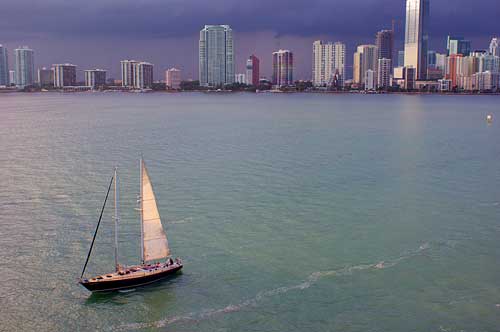
(Click image for larger.)
Some Chicago Boyz know each other from student days at the University of Chicago. Others are Chicago boys in spirit. The blog name is also intended as a good-humored gesture of admiration for distinguished Chicago School economists and fellow travelers.
Writing about the political turmoil/deadlock in Belgium, Megan McArdle observes:
In the long run, in the modern world it seems hard to have a state without a nation.
America is a state without a nation. Ideology, and not innate identity, unites Americans.
The Borders Group is not doing very well, and may offer itself for sale.
In previous posts, I’ve asked the questions What would you do if you were running General Motors? and What would you do it you were running Sears Holdings? (have to note Ralf’s classic comment about the GM question: “I would stop running the company and start just plain running.”)
So, just for fun, today’s discussion question is: If you were the new owner of Borders, what would you do?
As a thought-starter, here’s a WSJ article (registration required) about the chain’s attempt to increase sales by changing the way books are displayed–with the covers face-out. This is less space-efficient, of course, and reduces the number of titles a store can stock. Borders is also planning to locate digital centers in the stores–these are for downloading books and music, printing digital photos, etc. They are also terminating their relationship with Amazon, choosing instead to operate their own online ordering system.
Disclosure: I’m a current Barnes & Noble shareholder–I was once a BGP holder, but fortunately got out at about $19.
Thoughts?
Still, five years on, this endeavor in Iraq is taking hold. The U.S. military was invariably the great corrector. In their stoic acceptance of the mission given them and in the tender mercies they showed Iraqis on a daily basis, our soldiers held out the example of benevolent rule. (In extended travel in and out of Iraq over the last five years, I heard little talk of Abu Ghraib. The people of Iraq understood that Charles Graner and Lynndie England were psychopaths at odds with American military norms.)
In those five years, the scaffolding of the war came under steady assault. People said that there was no connection between al Qaeda and Saddam, that no “smoking gun” had been discovered, and that the invasion of Iraq had turned that country into a breeding ground of jihadists.
But those looking for that smoking gun did not understand that the distinction between secular and religious terror in that Arab landscape was a distinction without a difference. The impulse that took America from Kabul to Baghdad was a correct one. Radical Arabs attacked America on 9/11, and a war of deterrence had to be waged against Arab radicalism.
Baghdad was the proper return address, as a notice was served on the purveyors of terror that a price would be paid by those who aid and abet it. It was Saddam Hussein’s choice — and fate — that he would not duck and stay out of harm’s way in the aftermath of 9/11. We have not fully repaired the ways of the radicals in the intervening years. But the spectacle of the dictator’s defeat, and the sight of him being sent to the gallows, have worked wonders on the temper of the Arab street.
So we did not turn Baghdad into a democratic city on a hill, and we learned that the dismantling of Sunni tyranny would leave the Arab world’s Shiite stepchildren with primacy in Iraq. A better country has nonetheless risen, midwifed by this American war. It is not a flawless democracy. But compare it to the prison it was under Saddam, the tyranny next door in Damascus and the norms of the region, and we can have a measure of pride in what America has brought forth in Baghdad.
The news headline reads “RUSSIA, US FAIL TO AGREE ON MISSILE SHIELD”.
Hardly a surprise.
Russia has been making noise over the past few years like they are still a world power. So far, it is tough to take them seriously.
The Russian economy is doing pretty well right now due to oil exports to Europe, but only if one compares the present situation to what happened at the end of The Cold War. Russia is still having a great many problems, and more than a few pundits have suggested that it is pretty much a 3rd world country. They’re making a big deal about increasing their defense spending to around $40 billion USD per year, but the US spends about $500 billion a year. There isn’t much reason to take Russia seriously.
In fact, the last link will take you to an article that describes the only real card Russia has left to play in order to get any respect.
“Russian weapons are still considered second rate, and it’s the nuclear arsenal that provides Russia with whatever military power it really has.”
Oh, so that’s why they don’t like the idea of a missile shield! If we install the system in European countries friendly to the US, then even Poland would ignore Russia!
For Russia it is sort of like being the schoolyard bully, and then one day the geekiest nerd on the playground announces that he has taken some karate classes and can kick your butt any time he feels like it. If your parents can’t afford to buy you lessons of your own, then you are forever going to be the red headed stepchild of the school.
If you want to understand Russian foreign policy, just assume that everything they do is a desperate attempt to avoid getting a wedgie.